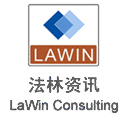| By Dennis Crouch
Sony Computer v. 1st Media LLC, Docket No 12-1086 (on petition for writ of certiorari 2013)
In a recent order, the Supreme Court has asked the Solicitor General to file a brief in this expressing the views of the United States in this pending inequitable conduct case. (CVSG). The case is essentially a challenge of the Federal Circuit's en banc decision in Therasense that strongly cabined-in the doctrine of inequitable conduct. In this case, the Federal Circuit rejected a district court holding of inequitable conduct in a failure-to-submit case. According to the lower court, three references used to reject the equivalent foreign cases were never submitted for consideration by the US examiners. Nevada district court Judge Mahan found that both the patent attorney and the listed inventor were at fault for failing to submit the references and consequently held the patent unenforceable due to inequitable conduct.
On appeal, the Federal Circuit reversed – making clear (again) that in a failure-to-disclose situation, the defendant must prove that individuals with a Rule 56 duty "made a deliberate decision to withhold" the references. Further, that deliberate decision element must be proven with clear and convincing evidence and that proof of intent cannot be inferred merely from the fact that the individuals had knowledge of the references and their materiality. The Federal Circuit wrote:
A court can no longer infer intent to deceive from non-disclosure of a reference solely because that reference was known and material. Moreover, a patentee need not offer any good faith explanation for his conduct unless and until an accused infringer has met his burden to prove an intent to deceive by clear and convincing evidence. . . . Moreover, it is not enough to argue carelessness, lack of attention, poor docketing or cross-referencing, or anything else that might be considered negligent or even grossly negligent. To sustain a charge of inequitable conduct, clear and convincing evidence must show that the applicant made a deliberate decision to withhold a known material reference. Whatever one might conclude about Lewis's and Sawyer's conduct and interactions relating to the Bush reference, and the nature of Sawyer's practice at the relevant time, the record does not support the inference that Lewis and Sawyer deliberately chose to withhold Bush.
Because one element of the inequitable conduct charge is missing, the court concluded that the charge cannot be proven. Of course, "carelessness, lack of attention, [or] poor docketing" will still lead to malpractice claims.
In the petition for writ of certiorari, the accused infringer asks the following question:
Did the Court of Appeals for the Federal Circuit err in restricting district courts' equitable discretion in evaluating patent unenforceability, contrary to this Court's precedent in Keystone Driller, Hazel-Atlas, and Precision Instrument, by applying a rigid test that (a) forecloses district courts from considering the entire circumstantial record; and (b) precludes district courts from granting equitable remedies where a patent applicant has violated the PTO's duty of candor.
In Therasense, the Federal Circuit added some flexibility to its analysis in cases involving sufficiently egregious misconduct. Sony responds that the limited carve-out "is flawed because it creates a rigid threshold [of an egregious affirmative act of misconduct] as a prerequisite to the equitable discretion called for by this Court's precedent. The flexibility embodied in this Court's precedent should apply in all cases, not just those involving affirmative egregious misconduct."
Supreme Court has a history of hearing fraud cases and this CVSG adds to the likelihood that it will hear this case. |



